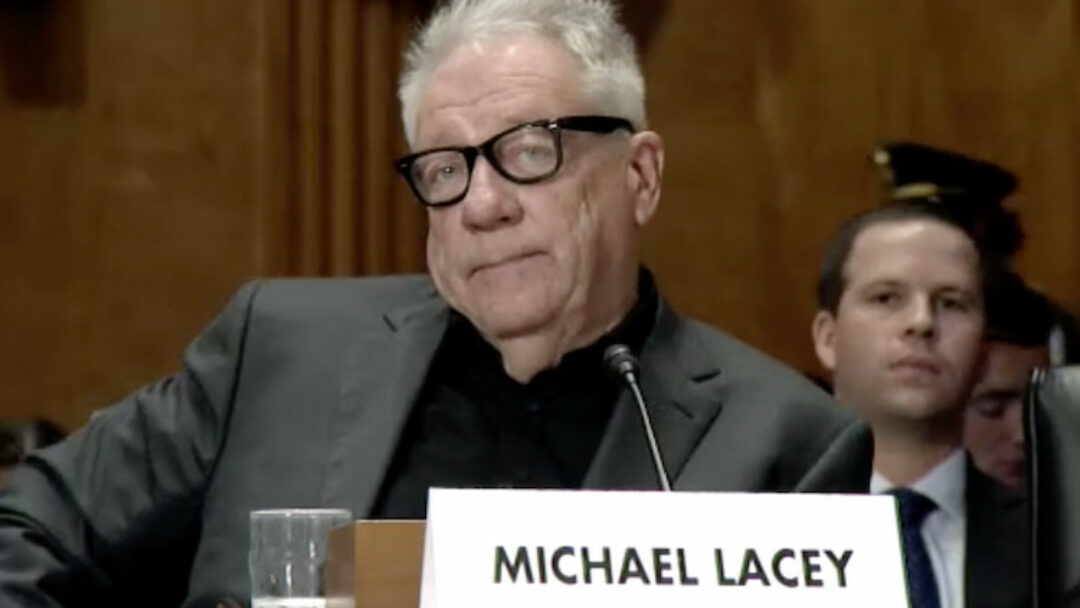In Arizona, federal prosecutors announced on Tuesday that they will pursue a new trial for one of the co-founders of Backpage.com, a profitable online classified site. Michael Lacey is being accused of being involved in a plot to advertise and sell sexual services. He faces numerous charges involving facilitating prostitution and money laundering.
In mid-November 2023, a jury found Lacey, 75, guilty of concealing money internationally and acquitted him of one charge of money laundering. However, the jury could not reach a verdict on 84 other charges.
That was the second attempt for Lacey, as the first one resulted in a mistrial because the judge determined in 2021 that the prosecutors mentioned child sex trafficking too frequently in a case where no one was charged with such a crime.
The prosecutors have submitted a formal notice of retrial in federal court in Phoenix on Tuesday, following the deadline set by U.S. Judge Diane Humetewa in an order issued on January 10th.
According to U.S. Attorney Gary Restaino, prosecutors have submitted a formal notice of retrial in federal court in Phoenix on Tuesday to retry Defendant Michael Lacy on the 84 charges that the previous jury could not come to a decision on.
Previously, Lacey faced a trial on a grand total of 86 charges related to the case involving him and four other individuals who were also employed at Backpage.
The Travel Act, a federal law that prohibits the use of interstate commerce to aid in prostitution in violation of state laws, resulted in the conviction of John Brunst, the chief financial officer of Backpage. He was found guilty of one count of conspiracy and over 30 counts of money laundering.
Backpage Executive Vice President, Scott Spear was found guilty of a single charge of conspiring to break the Travel Act, as well as multiple counts of aiding in prostitution and approximately 20 counts of money laundering.
Lacey, along with James Larkin, who passed away by suicide in late July, co-founded the Phoenix New Times weekly newspaper before starting Backpage. Larkin was one of the individuals charged in the case, and his death occurred approximately a week prior to the second trial against Backpage’s operators.
Lacey and Larkin were the owners of other weekly newspapers, including The Village Voice, which they eventually sold in 2013. However, they retained ownership of Backpage, which according to authorities, earned $500 million in profits from prostitution between 2004 and 2018, when it was forced to close by the government.
The prosecutors contended that Backpage’s operators disregarded multiple warnings to discontinue publishing prostitution advertisements, including those involving minors. It was alleged that the operators provided free advertisements to sex workers and established agreements with individuals in the sex industry to have them post ads on behalf of the company.
According to the operators of Backpage, they never permitted advertisements for sexual activities. They also had a team of employees and automated tools dedicated to removing these types of ads. The legal team of Backpage argued that the content on their website was safeguarded by the First Amendment.
Prosecutors are alleging that Lacey engaged in the act of using cryptocurrency and transferring funds to overseas bank accounts in order to conceal the profits generated from the website’s advertisement sales. This was done in response to banks expressing concerns over the potential illegal use of their services.
According to a report from the U.S. Government Accountability Office in June 2021, the FBI’s capacity to recognize victims and perpetrators of sex trafficking declined significantly following the government’s seizure of Backpage. This was due to law enforcement’s familiarity with the website, which was typically cooperative in providing information.
Additionally, in the year 2018, Dan Hyer, the sales and marketing director of the website, admitted his involvement in a plan to aid prostitution and confessed to offering complimentary advertisements to prostitutes in order to attract their patronage. Ferrer confessed to a different federal conspiracy case in Arizona and was also found guilty of state charges of money laundering in California.








